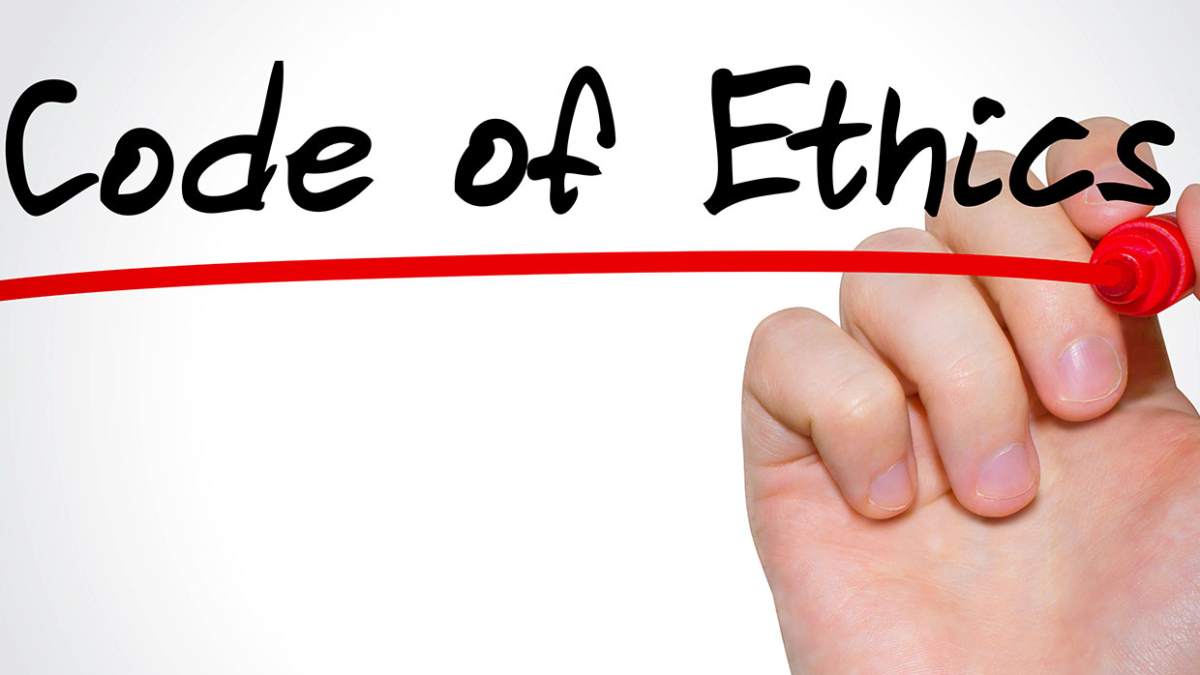Member comments are requested on these proposed revisions through 10 April 2020
By Kristen Russell
The Code of Ethics expresses each IEEE member’s commitment to the highest standards of professional integrity and ethical conduct.
The IEEE Board of Directors at its 24 November meeting approved the following resolution:
“Resolved that the proposed revisions to the IEEE Code of Ethics, in the form presented to the IEEE Board of Directors, is approved for publication in THE INSTITUTE and circulation to obtain member and volunteer feedback.”
The following is the IEEE Code of Ethics, with proposed revisions underlined. It is hereby published for comment in accordance with Section 7.8 of the IEEE Policies.
Proposed Revised IEEE Code of Ethics
We, the members of the IEEE, in recognition of the importance of our technologies in affecting the quality of life throughout the world, and in accepting a personal obligation to our profession, its members, and the communities we serve, do hereby commit ourselves to the highest ethical and professional conduct and agree:
I. To uphold the highest standards of integrity, responsible behavior, and ethical conduct in professional activities.
1. to hold paramount the safety, health, and welfare of the public, to strive to comply with ethical design and sustainable development practices, to protect the privacy of others, and to disclose promptly factors that might endanger the public or the environment;
2. to improve the understanding by individuals and society of the capabilities and societal implications of conventional and emerging technologies, including intelligent systems;
2. 3. to avoid real or perceived conflicts of interest whenever possible, and to disclose them to affected parties when they do exist;
4. to engage in lawful conduct and to reject bribery in all its forms;
3.and 7. 5. to seek, accept, and offer honest criticism of technical work, to acknowledge and correct errors, to be honest and realistic in stating claims or estimates based on available data, and to credit properly the contributions of others;
5. to improve the understanding by individuals and society of the capabilities and societal implications of conventional and emerging technologies, including intelligent systems;
6. to maintain and improve our technical competence and to undertake technological tasks for others only if qualified by training or experience, or after full disclosure of pertinent limitations;
II. To treat all persons fairly and with respect, to avoid harassment or discrimination, and avoid injuring others.
8. 7. to treat all persons fairly all persons and with respect, and to not engage in acts of avoid discrimination based on race, religion, gender, disability, age, national origin, sexual orientation, gender identity, or gender expression;
8. to avoid harassment of any kind, including sexual harassment or bullying behavior;
9. to avoid spreading malicious rumors, defamation, or any other verbal or physical abuses, and to avoid injuring others, their property, reputation, or employment by false or malicious action;
III. To strive to ensure this code is upheld by colleagues and co-workers.
10. To support assist colleagues and co-workers in their professional development and to support them in following this code of ethics, to strive to ensure the code is upheld, and to not retaliate against individuals reporting a violation.
Comments on the foregoing proposed revisions should be directed to 2020-code-of-ethics@ieee.org on or before 10 April 2020.
Kristen Russell is a program specialist for IEEE Technical Activities’ volunteer engagement group.

